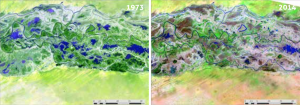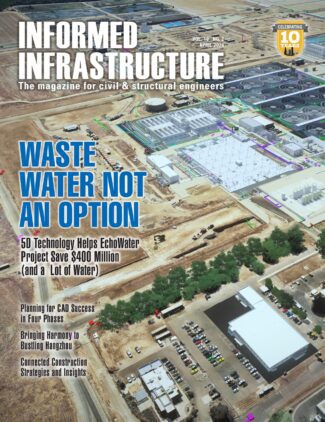
Satellite images compare the Senegal river and its tributaries, lakes and floodplain forests in 1974 and 2014. Comparing the two scenes, many lakes (blue areas) have a smaller area in 2014, and most of the forests (dark green areas) have been replaced by agriculture (light-green areas) and bare land (brown areas).
During Stockholm World Water Week, Wetlands International is leading the Connecting water peace and security through ecosystems event, calling on governments to recognize the role of wetlands systems in maintaining peace and security by supplying water and food as well as sustaining human health and livelihoods.
Around the world, the loss and degradation of wetlands has led to reduced livelihood options, social tensions and human displacement. Therefore, the organization calls for the mapping of wetlands ecosystems that act as regions' peacekeepers. They also call for shifting to sustainable water management, rather than the traditional development and hard infrastructure schemes in agriculture and hydropower that play havoc with regions' hydrology.
The report Water Shocks: Wetlands and Human Migration in the Sahel shows that loss and degradation of wetlands in the Sahelian region contribute directly and indirectly to water scarcity, land degradation and loss of livelihoods. This results in poverty, social tensions, conflicts, involuntary displacement and human migration.
For instance, around Lake Chad, the Boko Haram insurgency displaced more than 2.3 million people since mid-2013, including 1.3 million children. The Lake Chad Basin has lost 95% of its surface area due to water abstraction for irrigation projects, and youths from this region are joining armed groups because of lack of opportunities.
Wetlands International has proven that safeguarding wetlands provides multiple benefits that contribute to local livelihoods and well-being. For example, people of Rwambu, Uganda, were facing water scarcity due to agricultural expansion and bad management of wetlands. After a two-year restoration project, people can fetch water, feed cattle, catch fish and harvest medicinal plants.

